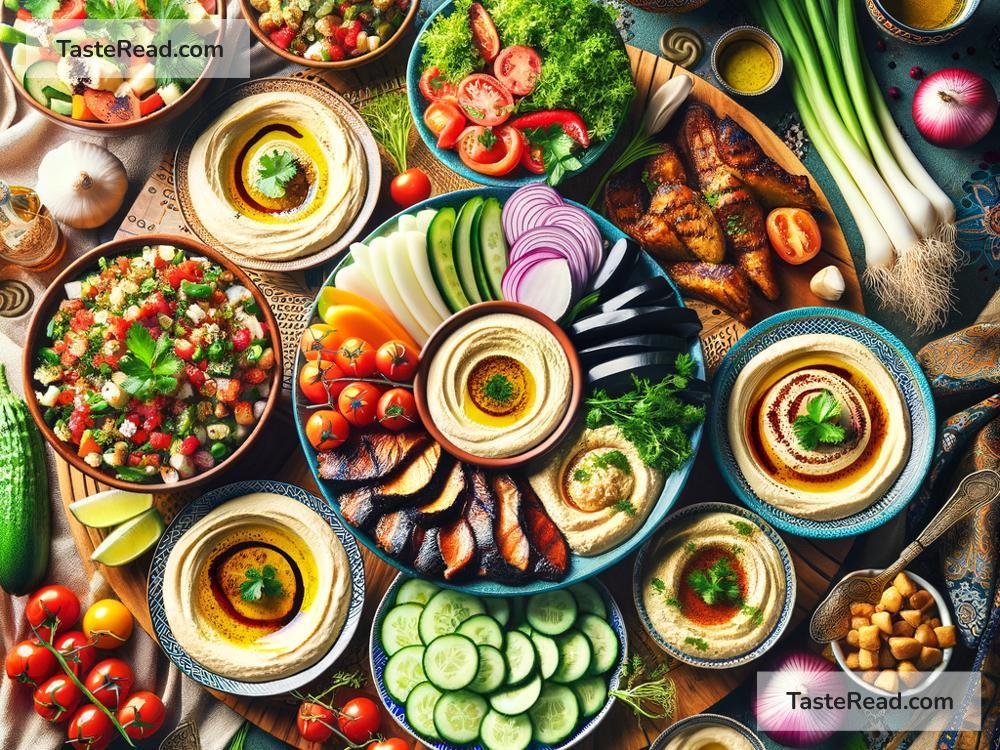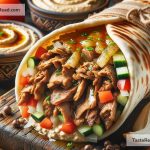Discovering the Wonders of Middle Eastern Cuisine: A Blend of Flavor and Nutrition
In the vast world of culinary traditions, Middle Eastern cuisine offers an enchanting journey for food lovers, blending extraordinary flavors with remarkable nutritional benefits. Often described as a hidden gem in the realm of international cuisines, it brings to the table an array of dishes that are not just mouth-wateringly delicious but also packed with health benefits. This unique combination is why many argue that Middle Eastern food stands out as the best for both flavor and nutrition.
A Feast for the Senses
Middle Eastern cuisine is a vibrant symphony of tastes and aromas. Each dish is a testament to the region’s long history, diverse cultures, and the use of an extensive range of spices and herbs like cumin, coriander, cardamom, saffron, and mint. These ingredients don’t just elevate the taste but are also known for their health properties. For instance, turmeric, a staple in Middle Eastern kitchens, is lauded for its anti-inflammatory and antioxidant effects.
One can’t talk about this cuisine without mentioning its most famous ambassador: hummus. This simple yet exquisite dip, made from chickpeas, tahini (sesame paste), garlic, and lemon juice, encapsulates the essence of Middle Eastern food—simple ingredients harmonizing to create a burst of flavors. Chickpeas, the star ingredient, are a fantastic source of protein and fiber, making hummus a nutritious addition to any meal.
Diversity in Every Bite
The Middle Eastern palette offers a diversity that caters to every taste and dietary need, making it incredibly inclusive. Vegetarians and vegans can revel in dishes like falafel, tabbouleh, and baba ganoush, which are not only flavorful but are packed with nutrients from their plant-based ingredients. Meat lovers are not left out, with a wide array of grilled meats and stews like kebabs and tagine, which are often cooked with minimal oil and served with an abundance of vegetables and whole grains, ensuring a balanced meal.
What sets Middle Eastern cuisine apart is its clever use of whole grains such as bulgur, barley, and couscous. These grains are not just a source of complex carbohydrates (providing sustained energy) but are also rich in vitamins, minerals, and fiber, promoting digestive health and preventing chronic diseases.
A Culture of Sharing and Wholesomeness
Eating Middle Eastern food is not just about nourishing the body but also about a cultural experience that promotes sharing and community. Meals are often served family-style, encouraging a communal dining experience that is both heartwarming and wholesome. This aspect of the cuisine emphasizes not just the nutritional value of the food but also the importance of enjoying meals with loved ones, contributing to overall well-being.
Moreover, the traditional Middle Eastern diet leans heavily on fresh produce, with meals containing an abundance of fruits and vegetables. This emphasis on freshness ensures that dishes are not just flavorful but also retain their nutritional value, providing ample vitamins, minerals, and antioxidants that support overall health.
Health Benefits Galore
Middle Eastern cuisine’s alignment with the principles of the Mediterranean diet, known for its health benefits, is no secret. The diet’s emphasis on lean proteins, whole grains, healthy fats (hello, olive oil!), and fresh vegetables mirrors the nutritional profile of many Middle Eastern dishes. This correlation is significant, as the Mediterranean diet has been linked to reduced risks of heart disease, diabetes, and other chronic conditions.
The balance of flavors and nutrients in Middle Eastern cuisine reflects a food culture that values both enjoyment and health. For instance, the sparing use of processed ingredients and sugars in traditional recipes means that dishes are naturally low in calories and bad fats but high in the good stuff, like fiber and antioxidants.
Embracing Middle Eastern Cuisine
Embracing Middle Eastern cuisine means inviting a world of flavors and nutrients into your kitchen. It’s an opportunity to explore simple yet profound cooking practices that have stood the test of time, celebrating natural ingredients and their health benefits. Whether it’s the tangy zest of a freshly made tabbouleh, the smoky depth of grilled kebab, or the creamy delight of hummus, each dish offers a piece of the region’s rich culinary heritage.
In a world where fast food and processed meals are prevalent, Middle Eastern cuisine stands as a beacon for what food should be—nutritious, flavorful, and a joy to share. So, the next time you’re pondering what to cook, consider taking a culinary trip to the Middle East. You’ll not only treat your taste buds to an array of delightful flavors but also nourish your body in the most wholesome way possible.


